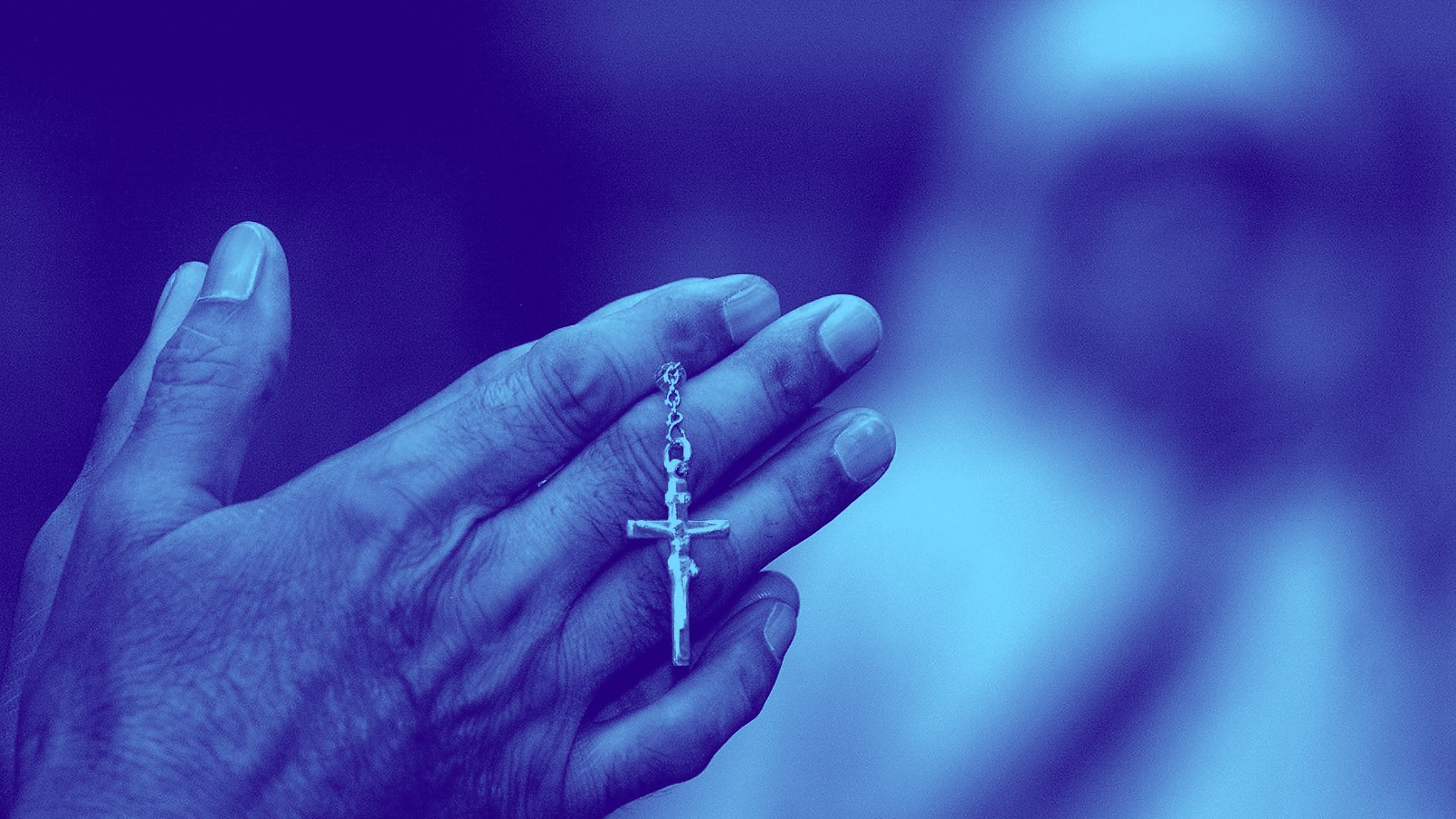Karnataka’s Church ‘Surveys’: Anti-Conversion Bill Will Fuel Right-Wing Violence
ANALYSIS: December 1, 2021:
As of 31 October 2021, Karnataka ranks fourth in the country for its targeted violence against Christians
Once upon a time, say, up to the turn of the century, Bangalore city was known as the ‘Catholic Capital of India’. It was also known as the cleanest city in India, and its tree-lined roads were an envy of the country. And Karnataka was just getting to be known as the gateway to south India for the Bharatiya Janata Party (BJP) and the Rashtriya Swayamsewak Sangh (RSS).
As of 31 October 2021, Karnataka ranks fourth in the country for its targeted violence against Christians. Of the 320 or so cases recorded by the United Christian forum, the Evangelical Fellowship of India and Persecution Relief, Uttar Pradesh topped with 99, Madhya Pradesh had 45, Chhattisgarh recorded 39, and Karnataka 23. Orissa, which had in 2008 witnessed the most vicious pogrom against the community ever, had 15 cases. National capital Delhi recorded four. Bengal had a near clean record, with one case.
Karnataka is Simmering:
Bangalore city has been the scene of protests by a very concerned, almost frightened, Christian community, which fears that the BJP government’s plan to bring an anti-conversion law on the pattern of nine other states in the country may unleash vigilante attacks by Hindutva groups on churches, pastors, and the common people.
A delegation of Hindu seers and Sri Rama Sene’s president Pramod Muthalik met the Chief Minister and reiterated the demand for a law at the earliest. Sri Rama Sene and Bajrang Dal have been in the lead protesting against what they call “forced conversion” by Christian pastors in several parts of the state.
The Bajrang Dal a few days ago disturbed a Christian prayer meet at Belur, alleging Hindus are being forcibly converted and a prayer hall that was constructed was illegal. In Belagavi, the police told Christians to avoid prayer meets if they don’t want to be attacked by right-wing activists.
Muslims & Christians Voters in Karnataka
Christians do not really matter politically in the state other than in the coastal belt of Mangalore, which saw massive violence in 2007 and 2008 in the wake of the pogrom against Christians in Kandhamal in Orissa. At a mere 1.93 % of the population, the community can get a handful of Assembly seats but is not even considered a swing vote in most constituencies.
The Muslims matter at 12.92% of the population, though Hindus at 84% are higher than the near 80% in the national population. And off-record, the Muslims fear they are the real target of the government and the extreme elements of the Sangh Parivar who have earned notoriety with the assassination of intellectuals and writers.
Muslims indeed have a point. Several of the eight states which have laws called Freedom of Religion Acts, a misnomer whose cynicism is not lost on the global human rights community, have fine-tuned them from their earlier role against Catholic clergy and evangelical pastors to Muslim young men courting and marrying Hindu women. Uttar Pradesh, which earlier did not have an anti-conversion law, quickly enacted one to stop interfaith marriages, saying the women were enticed and then forced to change their religion. Police and religious groups quickly joined police in targeting pastors and Muslim men as Chief Minister Adityanath looked approvingly.
The draft of the laws against forcible and fraudulent conversions promised by the Bommai government is not known. But it is expected to stick to the format of similar laws in several states.
The text of each such law carefully says it is to prevent conversions by force or fraud. They differ marginally on such matters as the quantum of punishment and the need for prior permission.
‘Ghar Wapasi’ vs ‘Conversions’
The Bill in the Gujarat assembly this summer said organization heads and other persons found violating the law could be sentenced to between three years and 10 years, and a fine of up to Rs. 500,000. A marriage will be declared void, with the burden of proof to lie with the accused facing such a non-bailable charge. Topping it was the provision that a woman’s “siblings or any other person related by blood, marriage or adoption” could lodge a complaint.
State high courts have upheld the premise of the laws despite jurists, civil society, and international rights groups arguing they violate the freedom of not just religious minorities but curtail the religious freedom of all citizens. The laws presume that Dalits, Adivasis, women, and marginalized communities lack the faculties to discern their own good and make educated choices.
There is no pretense at equality of religions in the eye of the law. Conversions to Christianity and Islam are questioned, but conversions to Hinduism are permitted, if not actively encouraged in the guise of “Ghar Wapsi” or return to the ‘mother religion’.
Article 341 (3) reserves these privileges to only former untouchable castes professing Hinduism, Jainism, Sikhism, and Buddhism. The minority communities have challenged this law in the Supreme court.
The immediate fear is that one more such law will aggravate the hate campaigns against Christians, and that, in turn, will lead to violence against them.
Odisha Example
There is considerable evidence since 1990 on how hate campaigns targeting and demonizing religious minorities have led to individual and mass violence.
For Christians, the example of Kandhamal in Odisha is more than enough. The first anti-conversion law was passed in Odisha in 1967. The attacks on Christians began from the ‘70s onwards, culminating in the Kandhamal genocide in 2007 and 2008. The law gave a justification for the attacks on the Christians.
Justice AP Shah, who chaired the 2021 Kandhamal Day observances, noted, “Scores of people were killed, hundreds of villages were ransacked, thousands of houses were looted and burnt. Overnight, over 75,000 people became homeless. Mainly one community bore the brunt of all this violence, as those who lost their homes, villages, and belongings were predominantly Christian. Churches, schools, colleges, philanthropic institutions, even leprosy homes, and TB sanatoriums were destroyed and looted. Schooling and education came to a standstill, dozens of women were raped and molested. And many were also forced to renounce Christianity, and/or reconvert to Hinduism.”
The US Commission on International Religious Freedom (USCIRF) has downgraded India to the lowest ranking, “Countries of Particular Concern” (CPC) in its 2020 report. The US State Department ranked India’s persecution severity at “Tier 2” along with Iraq and Afghanistan. Over the past seven years, India has risen from No. 31 to No. 10 on Open Doors’ World Watch List, ranking just behind Iran in persecution severity.
Bishop’s Letter
The survey of churches and prayer halls was stopped after a sharp letter to the Chief Minister and a press conference by Bengaluru Archbishop Peter Machado last month.
The US Commission on International Religious Freedom (USCIRF) has downgraded India to the lowest ranking, “Countries of Particular Concern” (CPC) in its 2020 report. The US State Department ranked India’s persecution severity at “Tier 2” along with Iraq and Afghanistan. Over the past seven years, India has risen from No. 31 to No. 10 on Open Doors’ World Watch List, ranking just behind Iran in persecution severity.
The survey of churches and prayer halls was stopped after a sharp letter to the Chief Minister and a press conference by Bengaluru Archbishop Peter Machado last month.
A delegation of Bishops and Christian leaders met the Belagavi Police Commissioner and submitted a memorandum, seeking protection.
“This is a dangerous development wherein it appears that instead of giving protection to the Christians we are asked to stop all our activities because of the threats posed by certain sections of people in the society. All that is happening in these prayer halls are within the framework of the Constitution. We would personally feel instead of restraining the priests and pastors from praying, the miscreants should be booked, and action taken.”
That would seem a reasonable request.
(John Dayal is a writer and activist. He is a former President of the 102-year-old All India Catholic Union. This is an opinion piece and the views expressed above are the author’s own. This opinion was originally published in The Quint. The Quint neither endorses nor is responsible for the same.)
https://www.thequint.com/voices/opinion/karnatakas-church-surveys-anti-conversion-law-will-fuel-right-wing-violence#read-more






